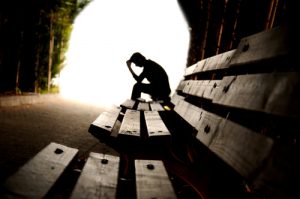Adult Depression 
What you Need to know!
Depression is a mood disorder that causes a persistent feeling of sadness and loss of interest. Depression is also called major depressive disorder or clinical depression and it affects how you feel, think and behave and can lead to a variety of emotional and physical problems. You may have trouble doing normal day-to-day activities, and sometimes you may feel a sense of hopelessness and/or life isn’t worth living.
Adult depression is more than an occasional feeling of the blues. Feeling depressed or having been diagnosed with depression does not mean you are weak, and you can’t simply turn depression off or snap out of it. Once a person with depression begins to get some counseling or medication or both they begin feeling better.
Symptoms of Depression:
Although some people may only experience depression once during their life, some people can have multiple episodes. During these episodes, symptoms occur most of the day, nearly every day and may include:
- Feelings of sadness, tearfulness, emptiness or hopelessness
- Angry outbursts, irritability or frustration, even over small matters
- Loss of interest or pleasure in most or all normal activities, such as sex, hobbies or sports.
- Sleep disturbances, including insomnia or sleeping too much.
- Tiredness and lack of energy, so even small tasks take extra effort.
- Reduced appetite and weight loss or increased cravings for food and weight gain.
- Anxiety, agitation or restlessness.
- Slowed thinking, speaking or body movements.
- Feelings of worthlessness or guilt, fixating on past failures or self-blame.
- Trouble thinking, concentrating, making decisions and remembering things.
- Frequent or recurrent thoughts of death, suicidal thoughts, suicide attempts or suicide.
Physical Problems of Adult Depression:
There are physical problems people may experience when depressed such as: back and joint pain, muscle aches and chest pain. Headaches are very common, and if you already have had migraines they may seem worse. It may slow your digestive system down, you may become queasy or nauseated. You may have diarrhea or become constipated. Adult depression can exacerbate on-going health problems you already have. For many people with depression, symptoms usually are severe enough to cause noticeable problems in day-to-day activities, such as work, school, social activities or relationships with others. Some people may feel generally miserable or unhappy without really knowing why.
Risk factors:
Depression often begins in the teens, 20s or 30s, but it can happen at any age. More women than men are diagnosed with depression, but this may be due in part because women are more likely to seek treatment.
Factors that seem to increase the risk of developing or triggering depression include:
- Certain personality traits, such as low self-esteem or being too dependent, being self-critical or pessimistic
- Traumatic or stressful events such as physical or sexual abuse
- The death or loss of a loved one
- A difficult relationship
- Financial problems
- Blood relatives with a history of depression, bipolar disorder, alcoholism or suicide
- Being lesbian, gay, bisexual or transgender, or having variations in the development of genital organs that aren’t clearly male or female (intersex) in an unsupportive situation
- History of other mental health disorders such as anxiety disorder, eating disorders or post-traumatic stress disorder
- Abuse of alcohol or recreational drugs
- Serious or chronic illness including cancer, stroke, chronic pain or heart disease
- Certain medications such as some high blood pressure medications or sleeping pills (talk to your doctor before stopping any medication)
Complications:
Depression is a serious disorder that can take a terrible toll on you and your family. Depression often gets worse if it isn’t treated, resulting in emotional, behavioral and health problems that affect every area of your life.
Treatment of Depression:
When a person experiences persistent depressive feelings counseling along with medication (antidepressants) can be a helpful treatment to those who are suffering with the symptoms of depression. Antidepressants used with counseling can help you jump start your mood, get you back to doing healthy things that you enjoy. They can help clear your thoughts as you discuss with a counselor your depression and how it is affecting your life. Seeking Professional Counseling can help you define and reach wellness goals, understand your depression better, overcome fears and insecurities associated with depression. A counselor can help you identify triggers that may worsen your symptoms, and improve relationships with family and friends.
